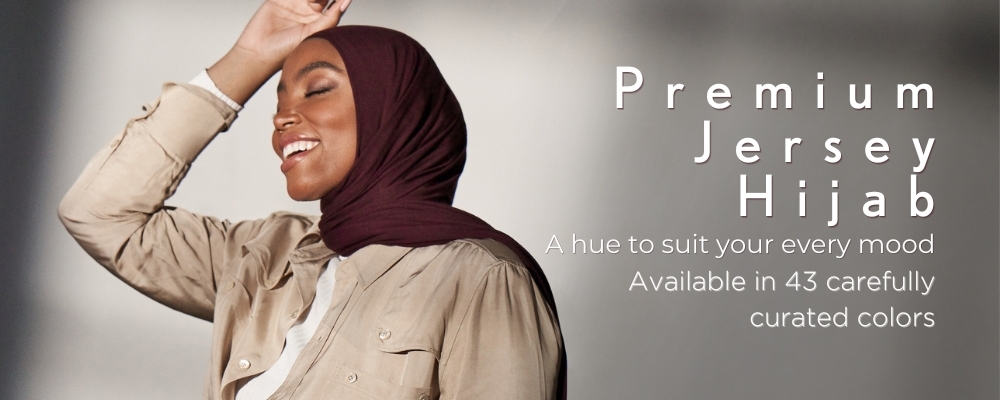#CantBanUs Explores a Timeline of Hijab, Burkini, Abaya and Other Bans in France
Current Events
|
Sep 6, 2023
|
4 MIN READ
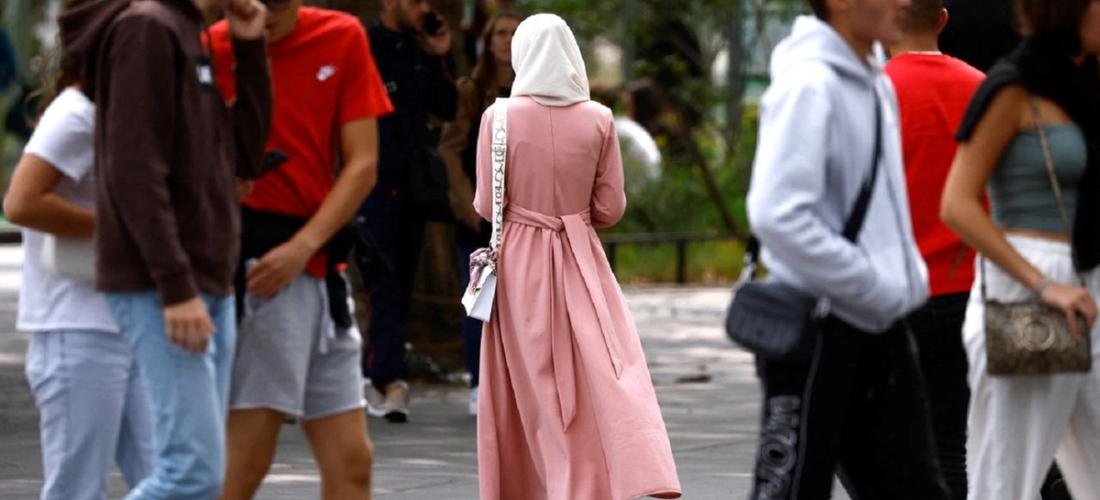
A French student is turned away from school for wearing an abaya. Image source: Twitter and CNN
First the hijab, then niqab, then the burkini and now? The abaya. The last few decades have been punctuated by France’s ongoing targeting of Muslim visibility, especially when it comes to Muslim women and how they dress, all in the name of laicite, which is a French interpretation of secularism that calls for strict religious neutrality.
As Rim-Sarah Alouane, a Ph D. candidate at the University of Toulouse who is researching constitutional law, discrimination, religious freedoms and civil liberties in France, Europe and North America, wrote in this article, “France is unusual among western democracies in its efforts to define and control cultural expression. … A national argument over how Muslim women [in France] should look has raged since the beginning of the 1990s, when several female Muslim students were expelled from state schools for wearing a hijabon the grounds that the coverings were incompatible with the principle of laïcité, … [which] is central to the French identity.”
France’s history of suppressing religious freedom (which disproportionately affects Muslims, particularly Muslim women) goes back to it’s history of deep animosity and suspicion towards the country’s relationships with the Roman Catholic Church, Rim-Sarah explained to Haute Hijab in this interview we did a few years ago. In understanding this push-pull history between religion and a secular state, one can gain a greater understanding of why hijab ban amendments and laws as well as a rise in Islamophobia has been a constant issue in France, especially in the past two decades.
Let’s look at a timeline of recent hijab and other bans in France to understand how the country continues to expand its control of religious and cultural expression in the name of secularism.
The Hijab
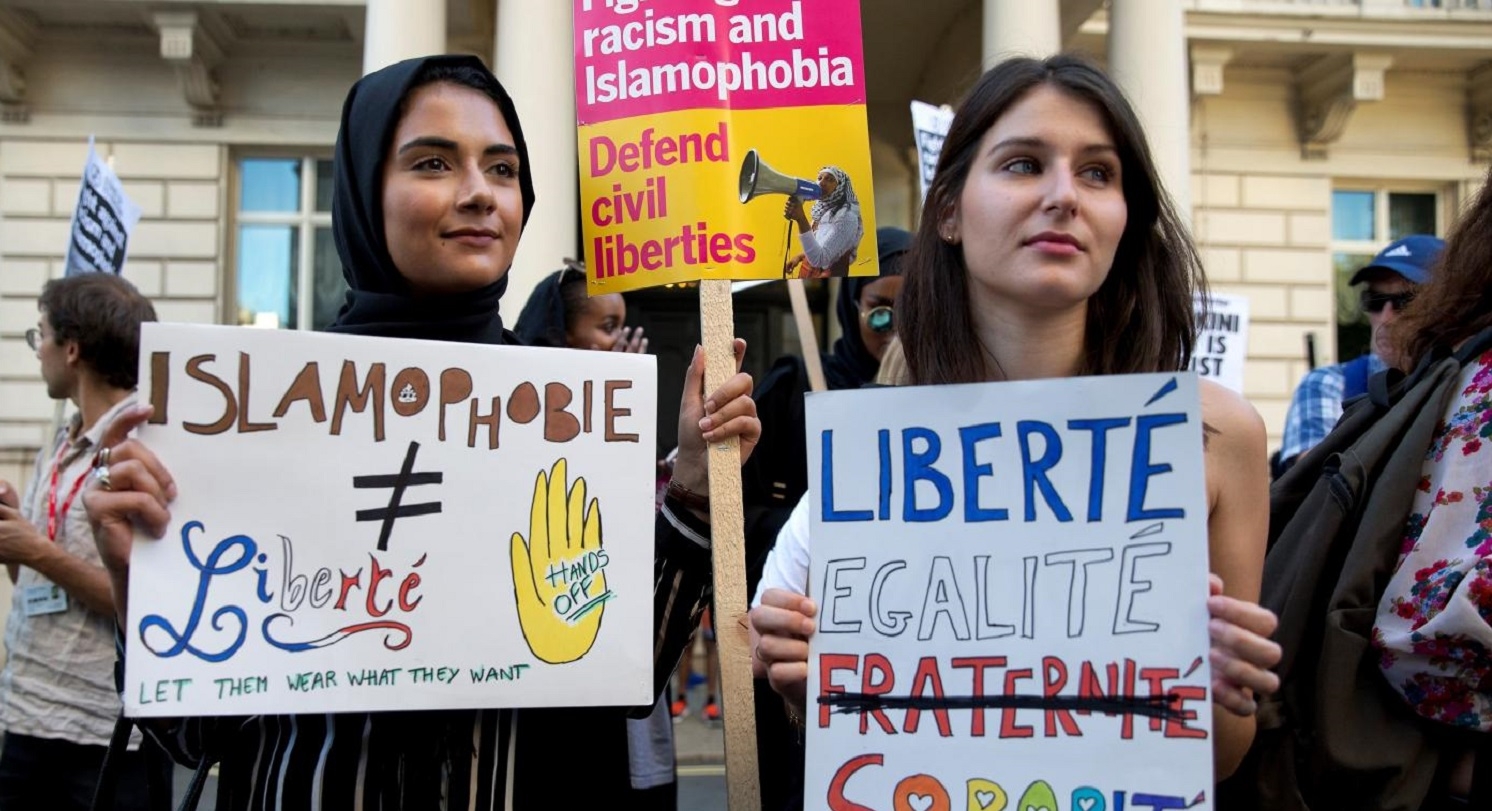
Image source: Wikimedia Commons
2004: France, which has long championed laicite (the constitutional principle of secularism in France), banned the hijab as part of a bill prohibiting the wearing of “conspicuous” religious symbols in public schools, which disproportionately affects Muslim women in the following years.
The Niqab
2008: The “Baby-Loup” case occurs, in which “nursery school employee Fatima Afif was fired for wearing a veil and later attempts were made to ban mothers in hijabs from joining their children on school trips.” The nursery school was a private entity, and Afif took her case to the French courts, arguing she was fired under religious discrimination, a suit that she lost. This is one of many controversies surrounding the hijab and niqab, writes Rim-Sarah, adding that the law was challenged by human rights groups but “eventually upheld by the European Court of Human Rights, paving the way for other European countries to follow France’s lead.”
2010: The niqab (face veil) is banned in France in all public spaces by an act of parliament, which includes masks, helmets, balaclavas, and other veils, except under special circumstances (such as when the COVID-19 global pandemic happened). Note this ban applies to ALL public spaces, not just schools. “For Muslim women looking for work, the strict religious neutrality applied to civil servants means that the public sector is essentially a closed door for those who choose to cover themselves in France,” writes Rim-Sarah. (
Really, we encourage you to read her article about the history of hijab etc. bans in France, focusing more on the burkini ban.)
The Burkini
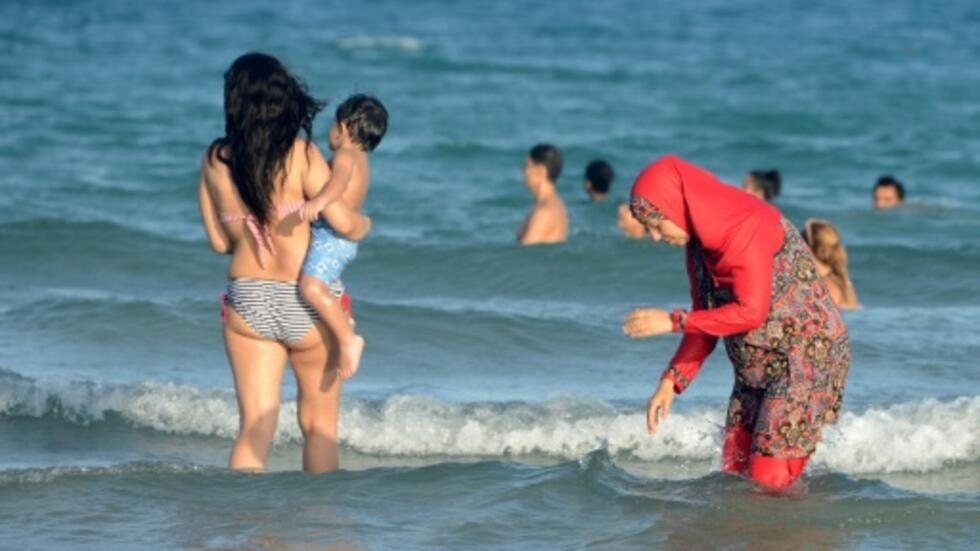
A Muslim woman wears a burkini on a French beach; image source Twitter; AFP
2016: The burkini (full-coverage swimsuit) is banned in public swimming pools and beaches throughout 30 cities in France. All were overturned in a landmark ruling. But then, the ban was later upheld by the French Council of State in 2022 in the east French city of Grenoble, which had allowed the burkini (and topless swimsuits) but faced criticism that allowing the burkini in public pools negated religious neutrality and ultimately had to backtrack. Most recently, two resorts on the French Riviera also banned the burkini on its beaches.
The Hijab in Sports Competitions
2022: A group of 300 French politicians decide the fate of Muslim women who wear hijab while engaging in sportsmanship. In a decisive legislative victory, they voted, 160 to 143, to pass an amendment, proposed by a right-wing group, to ban the hijab in sports competitions. Why? Because the French Senate argued that “neutrality is a requirement on the field of play.” The motion is pronounced by the French Senate to be progressive and “forward thinking.”
The language of the amendment says that the wearing of “conspicuous religious symbols is prohibited” to compete in official competitions and events organized by sports federations. But, as Al Jazeera reported, in their written support of the amendment, French senators specifically stated that the amendment bans “the wearing of the veil in sports competitions,” saying that hijabs are a safety risk for athletes when they practice or compete.
Consider that France is hosting the 2024 Summer Olympics, in which there are expected to be Muslim athletes in hijab competing.
The Abaya
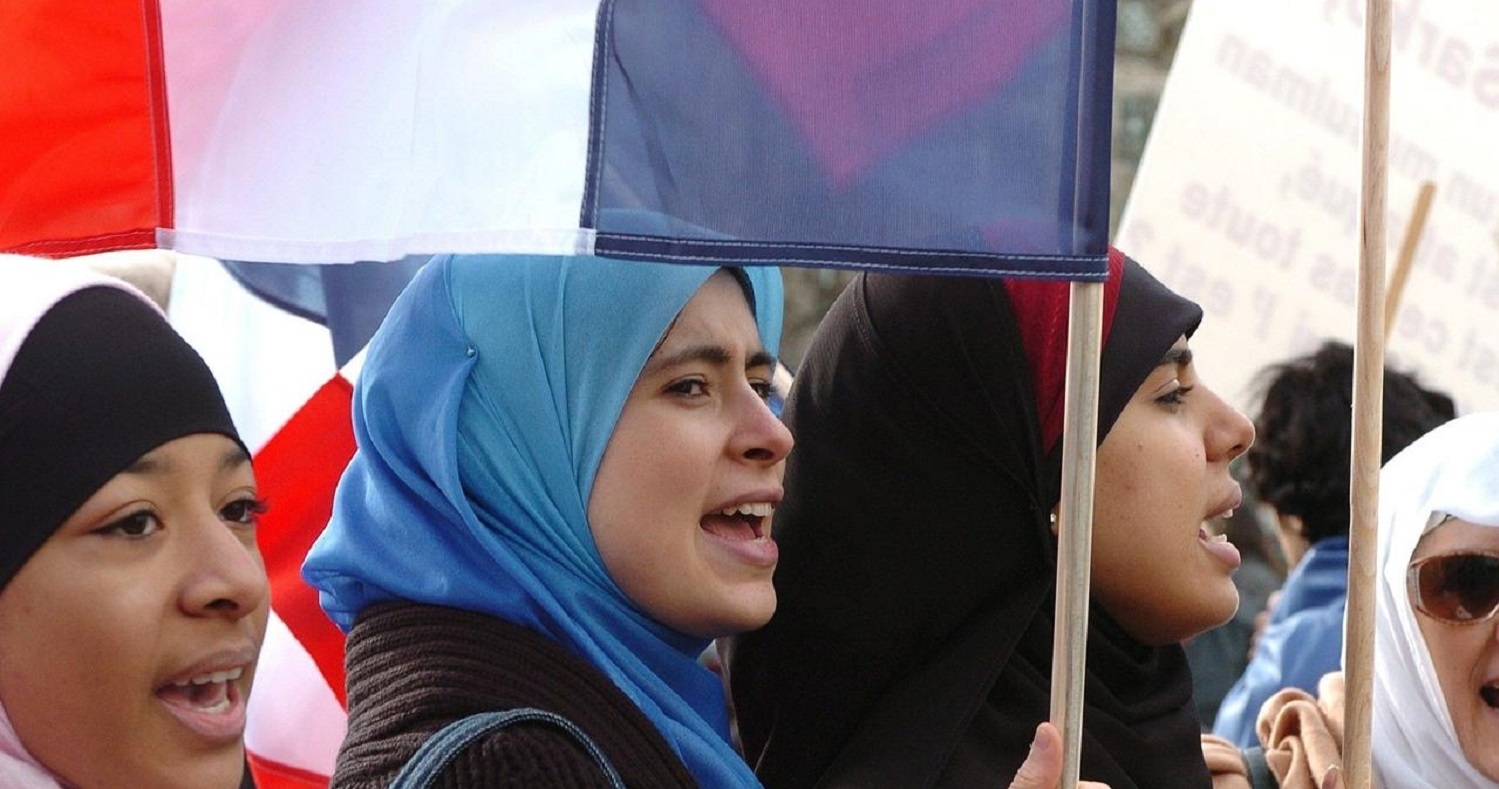
Women protest abaya ban in France; Image source: Wikimedia Commons and Twitter
2023: France’s Education Minister Gabriel Attal bans the abaya in public schools, citing that students wearing “religious attire like abayas and kameez” breaches laicite, which sparks protests when schools open up as Muslim students (and supporters) argue that the abaya is not a religiously-deemed garment, but a cultural one, and that banning it opens up interpretation on all kinds of modest dress. Basically the French education minister, in issuing this ban, is saying anything that looks “Muslim-y” is out. Abaya has been banned. Kameez is on the chopping block.
So, what’s next?
We remain committed to supporting women (and men) in their fight to end hijab bans, and we stand with those who are against being forced and punished if they do not. What more can we do to support you if you are facing a pushback or ban because of your hijab or modest dress? Let us know in the comments below or email us at movements@hautehijab.com.
Subscribe to be the first to know about new product releases, styling ideas and more.
What products are you interested in?


